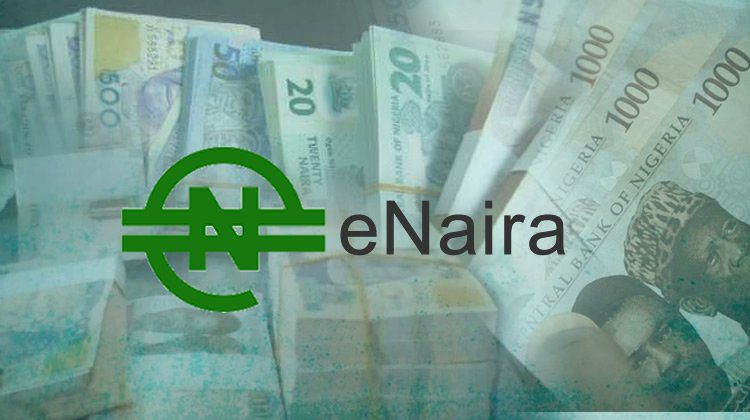Table of Contents
Digitization is revolutionizing the global financial outlook, with different innovations changing our perspective on money. One major feat is the advent of digital currency, poised to be in sync with making financial operations in the digital space. So as the world continues to lean towards a digital future, we need to know if digital currency will replace traditional money.
The rate at which people go to make bank for different financial transactions has greatly reduced. This is due to the ability to perform almost every online transaction using your mobile device.
While you can use your prepaid cards to make different payments, you can adopt an electronic bank transfer equally.
These two payment methods are fast, attracting more users than traditional banks.
The popularity increased in the wake of the pandemic in 2020 during global lockdowns. The closure of traditional banks led many people to use digital transactions.
This includes paying for shopping and sending and receiving money from loved ones and business customers.

The global financial inclusion rate has rapidly increased by the pandemic’s end. This was due to using various digital means to make transactions while reducing the number of people going to traditional banks for the same purposes.
Furthermore, the crypto space has significantly expanded with the adoption of cryptocurrency by many people. Bitcoin (BTC), Ethereum (ETH), Dogecoin (DOGE), and Litecoin (LTC) are the major crypto assets that have grown over the years.
Cryptocurrency exchanges have increased the popularity and trading of these crypto assets. They serve as the marketplace for crypto traders and investors to earn huge returns.
This was evident in 2020 when early crypto traders and investors became billionaires because of the surge in prices of these crypto assets.
In light of understanding the potential of cryptocurrency in disrupting the global financial market, countries’ governments are racing to develop digital currencies. These currencies are centralized in nature.
This is with the move to return power to the apex bank of the country, which is the central bank in regulating the digital currency.
Given the capabilities of digital currency, it now raises the question if traditional money is still the MVP of the global financial system. Also, there is a question of if digital currency has come to rule and dominate the future of money.
What Is Digital Currency?
Digital currency exists in two forms: digital cash and cryptocurrency.
Digital cash entails making payments for online purchases, electronic transfers, and other transactions across the digital space.
Here, bank accounts or card numbers can track fiat currencies like the naira, cedis, dollars, pounds, and euro. This is for the traditional banking system of a country.
This holds the same market value as the physical currency. This means that the value of the digital cash you have in your digital account is the same as that of the physical you hold.
On the other hand, cryptocurrency is another form of digital currency that operates in converse to digital cash. The idea behind cryptocurrency is to send funds digitally and anonymously.
How Digital Currency Works
This digital currency is decentralized, devoid of the meddlesome of third parties like governments or central banks.
There is a difference between cryptocurrency and fiat currency which anchors on the fact fact the former is not pegged to any currency, unlike digital cash.. Therefore, their prices result from market predictions by traders and investors.
However, stablecoins like the USDT are expected to be pegged to a fiat currency like the US dollar. But we have seen most of these stablecoins failing their primary purpose of being at par with fiat currency.
This idea of stablecoins pegging to the US dollar is to control the volatile nature of cryptocurrency.
This is in the instance of a stablecoin like USDT and the US dollar being at a ratio of 1:1. But this has not been fully achieved.
Furthermore, while BTC and ETH are private digital currencies, central bank digital currencies (CBDCs) are pegged to a country’s fiat currency.
This means that the money you hold in CBDC is equivalent to the deposit at the central bank. Also, the country’s central bank regulates the supply and demand of CBDCs.
Advantages And Disadvantages Of Digital Currency
Notably, the digital currency has benefits and drawbacks, which you need to know to guide you in using these novel currencies.
Advantages Of Digital Currency
-
Speed
Transactions with digital currency are considerably fast as the blockchain network confirms transactions, which increases scalability. You can be sure of sending and receiving funds immediately when using digital currency.
Transactions on digital payment platforms are lightning-fast than on traditional payment platforms like banks.
For instance, you can pay your cable tv subscription (digital cash) and confirm your payment immediately on Prestmit than other traditional payment platforms.
This is because Prestmit is a digital platform that employs sophisticated technology innovations that are efficient and effective.
-
Security
Strong security is always put in place to check and restrict malicious activities in digital currency. This is because security infrastructures like two-factor authentication (2FA) and biometrics mostly enable the wallets used to keep funds. These are to ensure the safety and security of funds.
-
Transparency
There is good transparency in using digital currency, as the blockchain network records transactions for easy tracking. Therefore, you can easily track your transaction history to show how much you received and transferred.
Disadvantages Of Digital Currency
-
Price Volatility
This is the major drawback of digital currency, especially cryptocurrencies. Let’s reiterate that cryptocurrencies like BTC, ETH, DOGE, and LTC are volatile because they have price swings due to market sentiments.
The prices of the crypto assets can be bullish now and become bearish a few hours later. As such, market predictions of these cryptocurrencies can not be perfectly accurate.
-
Regulatory Challenges
Recently, countries worldwide are taking stances to regulate crypto trading platforms. Many countries like Nigeria, Ghana, and China have banned the trade and investment of cryptocurrencies by banks.
On the other hand, countries like the United States and the European Union are creating regulations around digital currency.
Central Bank Digital Currencies (CBDCs)

A CBDC is a digital currency created by the central bank. In other words, it is the digital version of a fiat currency. It comes with the convenience of digital assets.
Due to lesser fees and access to digital offerings, it is pegged to fiat reserves at a 1:1 ratio. This is to provide the citizens with a cheaper and more efficient way to manage their funds.
CBDCs primarily provide the benefits of cryptocurrencies, such as banking the unbanked and fast transactions without price volatility. This is what differentiate cryptocurrency from traditional banks that are still grappling with financial inclusion.
This form of digital currency works in a way similar to traditional money. It is just that users will have a digital wallet they can use to receive funds, check balances, and transfer money between parties.
A CBDC is an innovative way to bank the unbanked such that people may not need a bank account to be active in the economy. The central bank reserves back the funds.
However, the question if digital currency will replace traditional money is still pending. This is because governments plan for CBDCs to work as an alternative to fiat currency.
It is to continue to support traditional money while promoting the digital currency ecosystem.
This led to the development and launch of eNaira in Nigeria in 2021. This digital currency was designed to be at a 1:1 ratio with the fiat naira currency. Nonetheless, the question of the propensity for cryptocurrency to kill central banks is still open to debate.
Challenges To Replacing Traditional Money
-
Security
The digital space has become a hotbed of scams and thefts as malicious entities lurk around different digital platforms to steal people’s funds. This is a major concern to many governments.
This harps on the spate of cybersecurity crypto-threats that have led to many thefts committed by hackers to steal traders’ and investors’ funds. This has even left some firms in debt and ultimately folding up.
Therefore, there is a lingering question about the security architecture of digital currency to be safe for use.
-
Privacy
Cryptocurrency has a privacy feature that makes the addresses anonymous. You can not track an address that receives and transfers crypto assets.
This feature enables people to commit many crypto thefts without the arrest of some of the perpetrators. It is another challenge facing digital currency to replace traditional money because of the fear of losing funds and being unable to recover them.
-
Regulatory Challenges
Over the years, digital currencies have attracted ambivalent views from experts. There is now the formulation of different regulatory frameworks to clamp down on its fast-paced adoption.
Moreover, cryptocurrencies are also a method to launder money and avoid international financial sanctions. Therefore, many crypto regulations are still in the pipe and which could hamper digital currency replacing traditional money soon.
The Future Outlook
As governments are in the experimental stage of CBDCs, mass adoption may not occur until the world has successfully experimented with them on a full scale.
The digital currency will undergo rigorous regulations to ascertain whether foreigners can use the currency.
However, it is better to see digital currency on a positive side. This ensures CBDCs expand safe payment options without reducing or replacing traditional money. It means that fiat currency will remain relevant, no matter what.
You can not predict the future outlook of digital currency replacing traditional money. Nonetheless, the continued progression of digital currency might end fiat currency in the long run.
Frequently Asked Questions (FAQs)
Is Digital Currency A Good Investment?
Digital currencies like Bitcoin and Ethereum are volatile and are high-risk investment outlooks. You can make huge returns on investment when the price is bullish. You also record a loss when the price is bearish. So it depends on you.
However, you may invest in CBDCs, since their prices are pegged to the fiat reserve. Your investment in CBDCs is the same as using your traditional money to support without the fear of price swings.
Will Digital Currency Replace Traditional Money?
Although digital currency is on the trajectory of replacing traditional money, the coast to achieve that is unclear. There is still much work to ensure people’s broad acceptance of digital currency. There will be an implementation of a series of regulatory frameworks.
Therefore, nobody can be sure of the future of digital currency being the currency of all.
Conclusion
The global financial system has had a major disruption from the advent of digital currency. It helps to improve financial inclusion and gives the power of money back to people.
This led many people to use digital currency, especially cryptocurrency, to trade and invest for maximum returns.
The digital currency has grown significantly, with the poise of even replacing traditional money if possible.
However, the digital currency has some drawbacks that need fixing before global acceptance. Therefore, you must understand the advantages and disadvantages of digital currency before investing in it.
Last updated on August 12, 2025

